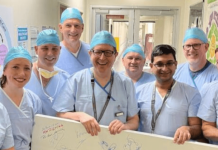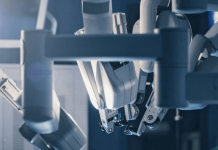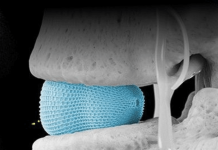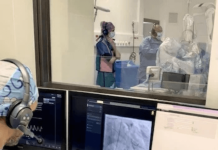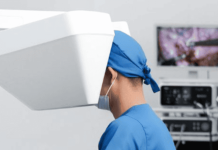Acorai, a clinical-stage company pioneering non-invasive hemodynamic monitoring for heart failure management, this week announced topline results from the 1,600-patient CAPTURE-HF study (Machine-Learning Estimation of Pulmonary Capillary Wedge and Right Atrial Pressures With a Non-Invasive Multi-sensor Device). Results were presented during a Late-Breaking Clinical Science session by Principal Investigator Andrew J. Sauer, M.D., Professor of Medicine at Saint Luke’s Kansas City, at the Heart Failure Society of America (HFSA) 2025 Annual Scientific Meeting in Minneapolis, Minnesota.
The prospective, two-phase study enrolled patients across 20 global sites to evaluate the accuracy, safety, and usability of Acorai’s device compared to the invasive right heart catheterisation gold standard.
Related: CorWave to present breaking results from its First-In-Human implant
In patients with heart failure, Acorai’s non-invasive multi-sensor device demonstrated (for detailed results, click here):
Pulmonary Capillary Wedge Pressure (PCWP >15 mmHg): AUC 0.821, Sensitivity 86%, Specificity 53%, Negative Predictive Value (NPV) 90%
Right Atrial Pressure (RAP >10 mmHg): AUC 0.852, Sensitivity 87%, Specificity 70%, NPV 97%
“Based on CAPTURE-HF data presented as late-breaking science at HFSA, Acorai’s multi-sensor platform showed high sensitivity and strong negative predictive value for ruling out elevated PCWP and RAP,” said Dr. Sauer. “In practice, that ‘rule-out’ performance is exactly what clinicians need for rapid ED triage, day-to-day fluid management, and confident discharge readiness decisions at the point of care.”
The results reinforce Acorai’s potential to serve as an easy-to-use and accurate point-of-care tool that enables clinicians to assess both left- and right-sided pressures. Importantly, subgroup analyses demonstrated stability of performance across patient populations and ejection fraction, supporting broad applicability in real-world care.
“CAPTURE-HF study data compares favorably to bedside clinician assessments alone and can provide more stable and repeatable measurements for improved detection of hemodynamic congestion and personalsation of heart failure therapy,” said Filip Peters, Chief Executive Officer of Acorai. “These results pave the way for our CAPTURE-HF 2 and HOSP-HF studies, designed to confirm both clinical and economic value, as we advance toward planned FDA submission in 2026.”
CAPTURE-HF enrolled 1,600 patients across 20 clinical sites in six countries. Phase 1 (n=1,300) focused on machine learning training; Phase 2 was a prespecified, prospective patient cohort (n=300) which validated performance against right heart catheterisation. 50% of patients were enrolled at U.S. sites.


